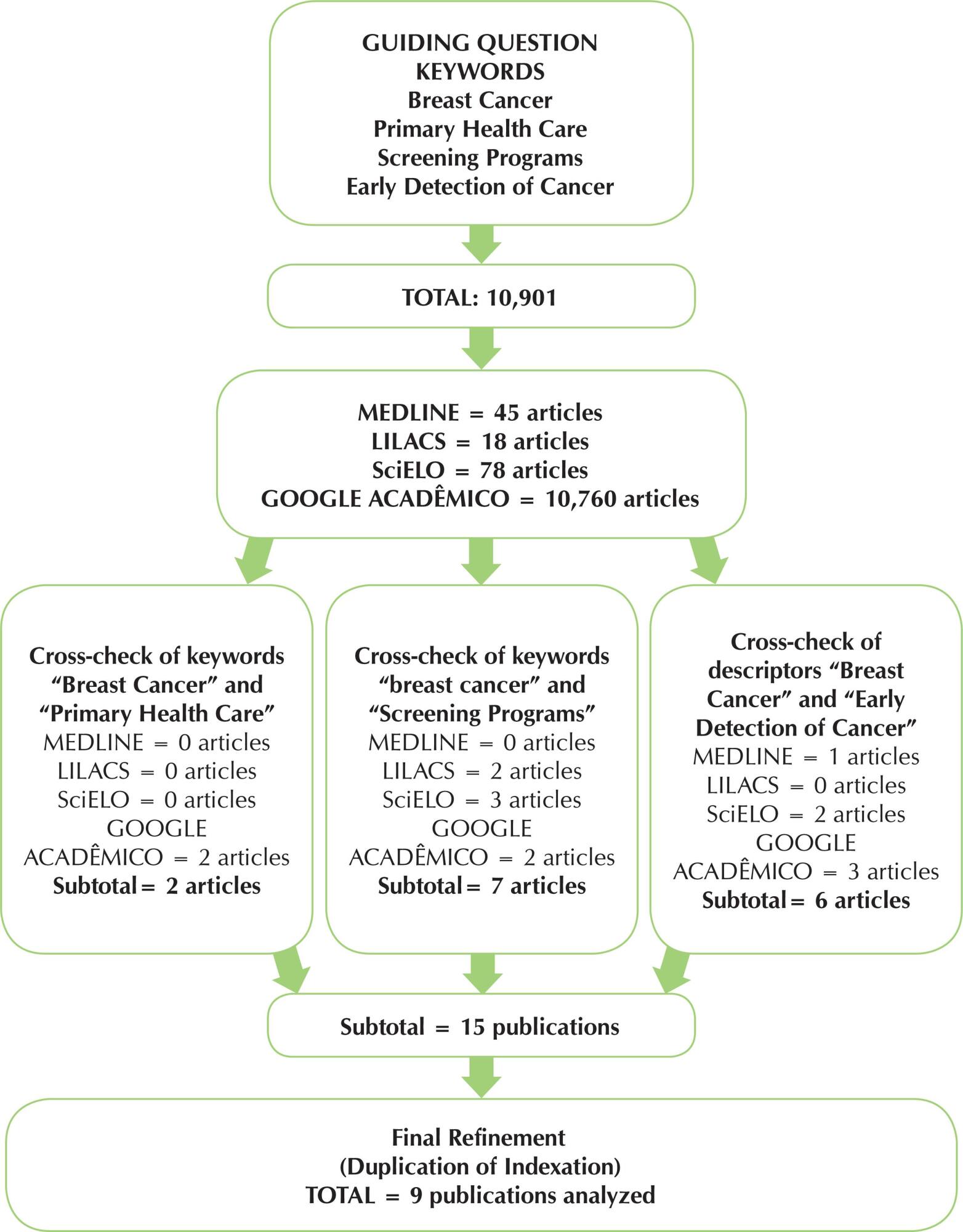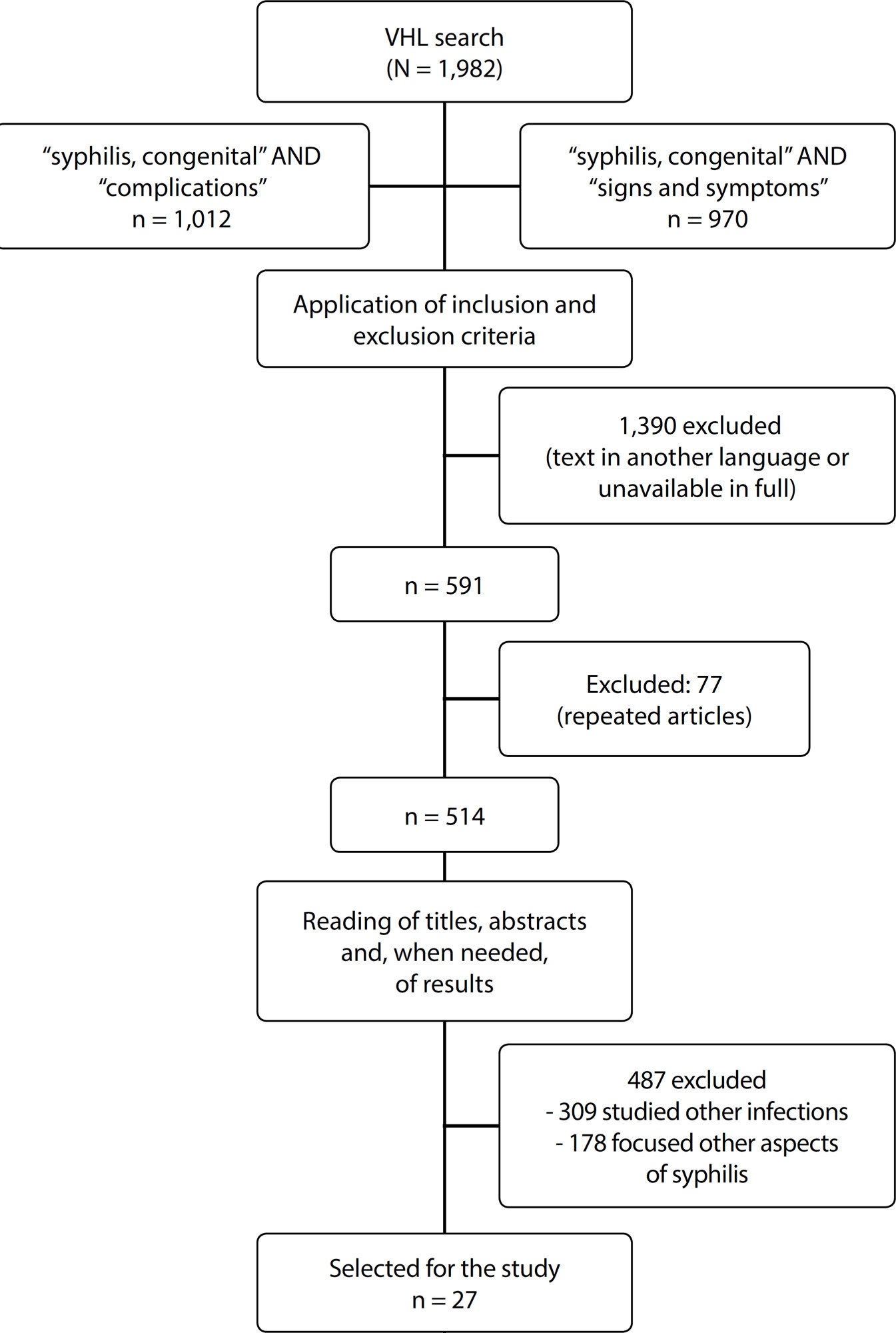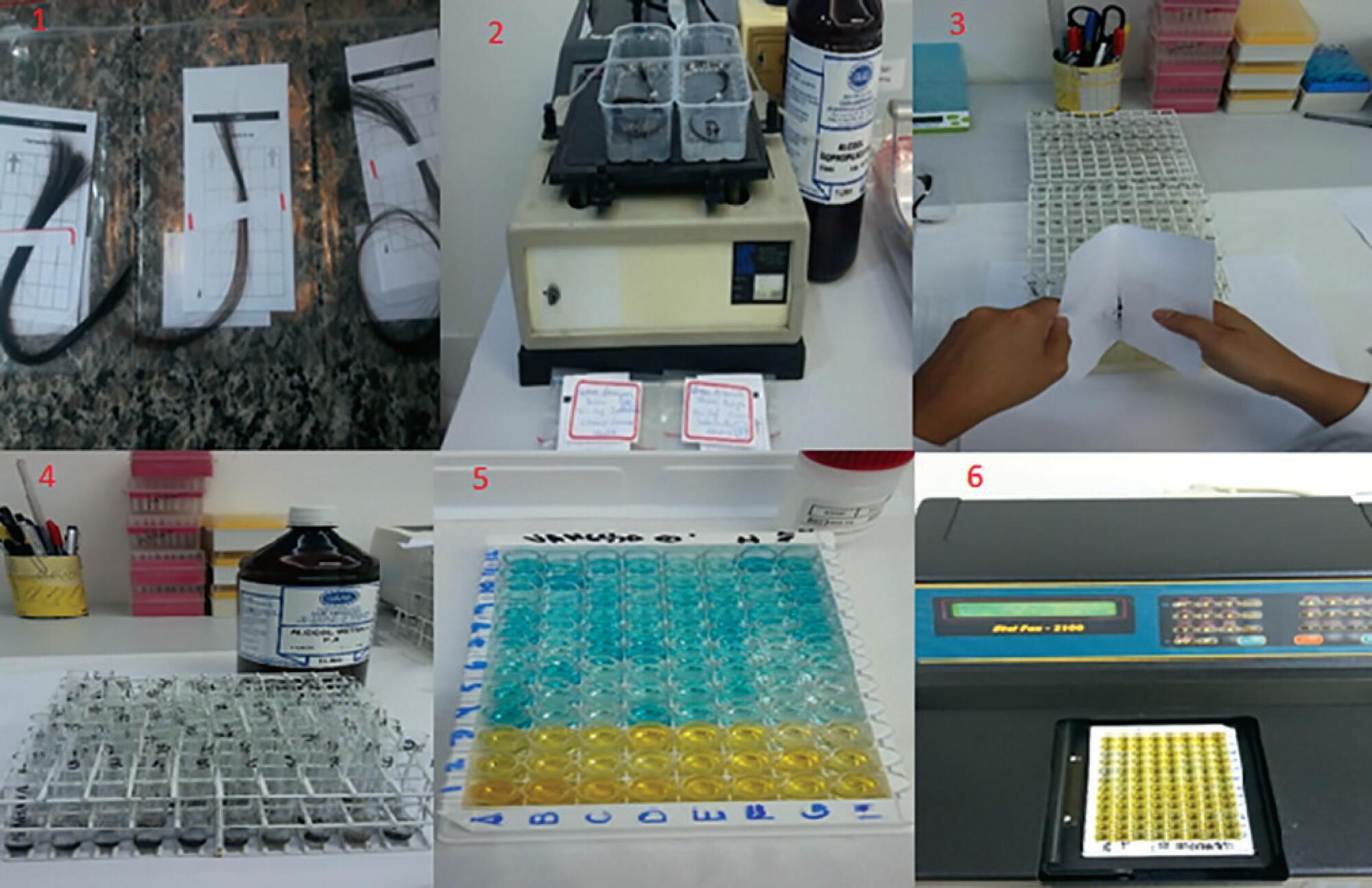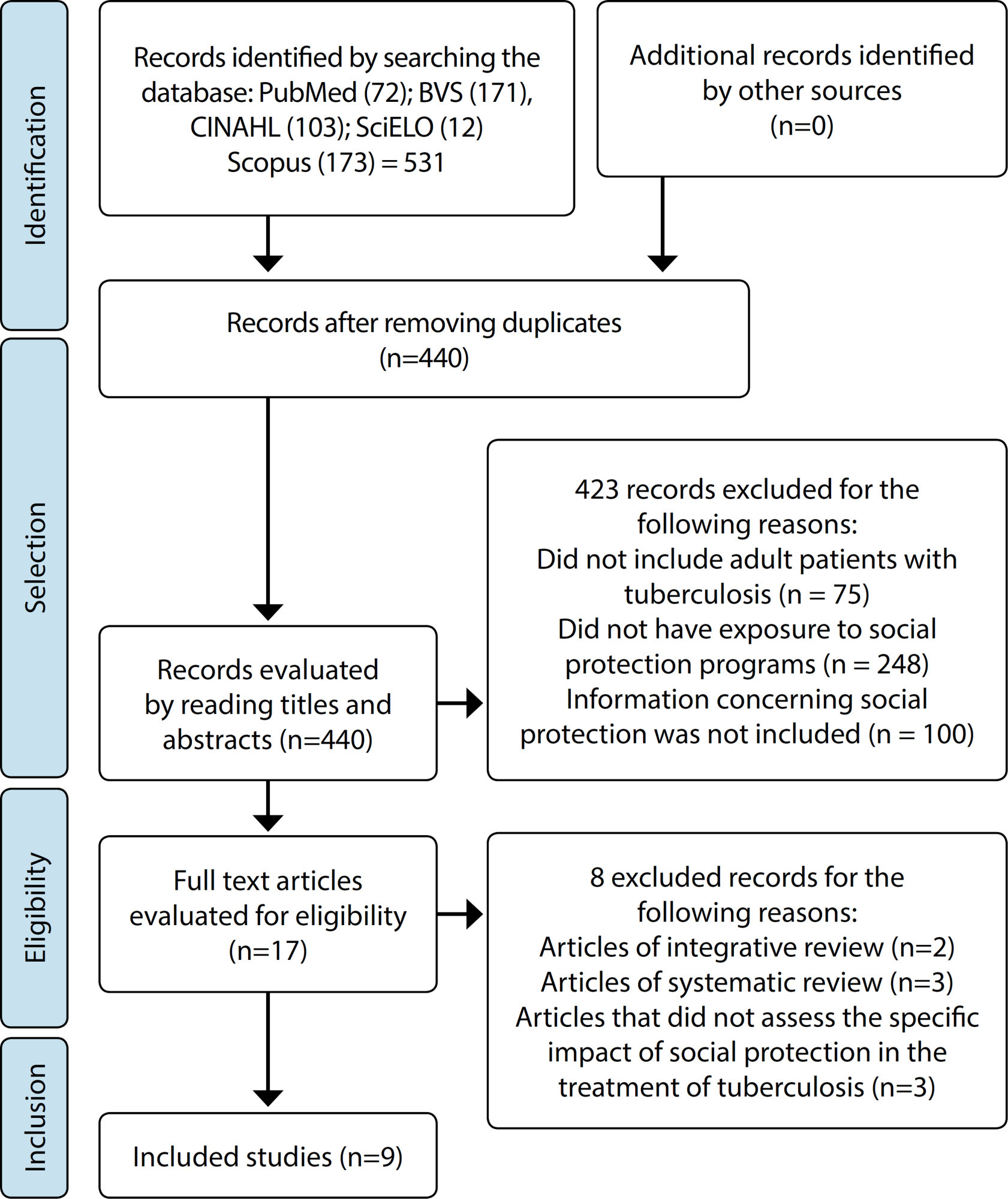-
RESEARCH
Accessibility assessment of assistive technology for the hearing impaired
Revista Brasileira de Enfermagem. 2016;69(5):833-839
01-01-2016
Abstract
RESEARCHAccessibility assessment of assistive technology for the hearing impaired
Revista Brasileira de Enfermagem. 2016;69(5):833-839
01-01-2016DOI 10.1590/0034-7167.2016690503
Views0ABSTRACT
Objective:
to assess the automatic accessibility of assistive technology in online courses for the hearing impaired.
Method:
evaluation study guided by the Assessment and Maintenance step proposed in the Model of Development of Digital Educational Material. The software Assessor and Simulator for the Accessibility of Sites (ASES) was used to analyze the online course “Education on Sexual and Reproductive Health: the use of condoms” according to the accessibility standards of national and international websites.
Results:
an error report generated by the program identified, in each didactic module, one error and two warnings related to two international principles and six warnings involved with six national recommendations. The warnings relevant to hearing-impaired people were corrected, and the course was considered accessible by automatic assessment.
Conclusion:
we concluded that the pages of the course were considered, by the software used, appropriate to the standards of web accessibility.
Keywords:Digital ExclusionDistance EducationInternetPeople with Hearing DisabilitiesSelf-help EquipmentSee more -
RESEARCH
Functional disability: health conditions and physical activity practice in older adults
Revista Brasileira de Enfermagem. 2016;69(5):825-832
01-01-2016
Abstract
RESEARCHFunctional disability: health conditions and physical activity practice in older adults
Revista Brasileira de Enfermagem. 2016;69(5):825-832
01-01-2016DOI 10.1590/0034-7167.2016690502
Views0See moreABSTRACT
Objective:
to verify the prevalence of functional disability among older adults and how it can affect their health conditions and the regular practice of physical activities.
Method:
this is a household and cross-sectional study conducted with older adults of both sexes. We verified the variables associated with functional disability by Poisson’s regression.
Results:
around 420 older adults participated in this study (68.1% of them being women). We observed a statistically significant association between functional disability, the number of chronic diseases, self-assessed health conditions, and the practice of physical activities; the latter only being found among men. Older adults who reported presenting four or more chronic diseases, self-assessed their health conditions as poor, and were not used to practice physical activities, showing high prevalence of functional disability.
Conclusion:
considering the changeable character of these variables, we recommend that prevention actions be taken, mainly at primary level, to delay the emergence of disability.
-
RESEARCH
Organizational culture of a psychiatric hospital and resilience of nursing workers
Revista Brasileira de Enfermagem. 2016;69(5):817-824
01-01-2016
Abstract
RESEARCHOrganizational culture of a psychiatric hospital and resilience of nursing workers
Revista Brasileira de Enfermagem. 2016;69(5):817-824
01-01-2016DOI 10.1590/0034-7167.2016690501
Views0ABSTRACT
Objective:
to analyze the organizational culture of a psychiatric hospital and identify the capacity of resilience of nursing workers.
Method:
quantitative research. For data collection, were used the Brazilian Instrument for Evaluation of Organizational Culture (IBACO – Instrumento Brasileiro para Avaliação da Cultura Organizacional) and the Resilience Scale (RS).
Results:
participants reported the existence of centralization of power and devaluation of workers, despite recognizing the existence of collaboration at work and practices for improving interpersonal relations. In relation to the capacity of resilience, 50% of workers showed high level, and 42.9% a medium level of resilience. The correlation tests revealed negative values between the IBACO and RS domains, indicating that the lower the appreciation of individuals in the institution, the greater their capacity of resilience.
Conclusion:
the organizational values reflect the work organization model in the institution that devalues the workers’ needs and requires greater capacity of resilience.
Keywords:Hospital AdministrationNursingOrganizational CulturePsychological ResilienceWorkers' HealthSee more -
EDITORIAL
Fazendo nossa pesquisa em enfermagem ser relevante
Revista Brasileira de Enfermagem. 2016;69(5):813-814
01-01-2016
Abstract
EDITORIALFazendo nossa pesquisa em enfermagem ser relevante
Revista Brasileira de Enfermagem. 2016;69(5):813-814
01-01-2016DOI 10.1590/0034-7167-2015-0156
Views0Enfermeiros em todo o mundo estão cada vez mais expostos a metodologias de pesquisa novas e interessantes. Ao mesmo tempo, sentem uma pressão considerável para assegurar que os estudos a que se propõem são suficientemente rigorosos metodologicamente para passar pelo crivo de avaliação para fomento ou publicação. Nesse contexto, é cada vez mais importante lembrarmos […]See more -
EDITORIAL
Making our nursing research matter
Revista Brasileira de Enfermagem. 2016;69(5):813-814
01-01-2016
Abstract
EDITORIALMaking our nursing research matter
Revista Brasileira de Enfermagem. 2016;69(5):813-814
01-01-2016DOI 10.1590/0034-7167-2015-0156
Views0Nurses worldwide are being increasingly exposed to new and interesting research methodologies. At the same time, they are feeling considerable pressure to ensure that the studies they propose are sufficiently methodologically rigorous to pass the scrutiny of review for funding or publication. In this context, it is increasingly important to remind ourselves that methodological rigor […]See more -
REVIEW
The Spiritism as therapy in the health care in the epilepsy
Revista Brasileira de Enfermagem. 2016;69(4):804-810
01-01-2016
Abstract
REVIEWThe Spiritism as therapy in the health care in the epilepsy
Revista Brasileira de Enfermagem. 2016;69(4):804-810
01-01-2016DOI 10.1590/0034-7167.2016690425i
Views0See moreABSTRACT
Objective:
to present a brief history of Spiritism, the vision of epilepsy by Spiritism, and the potential of spirituality and religiosity care as complementary and coadjutants treatments in epilepsy.
Method:
this is a brief review about the impact of faith, spirituality, and religiosity, particularly the Spiritism philosophy as complementary treatment to neurological disorders (particularly focusing on epilepsy) and mental health. We conduct a review of published articles (about religion/spirituality and epilepsy) in the Pubmed and SciELO databases.
Conclusion:
the exercise of spirituality and religiosity can be a positive coping strategy to support the traditional therapy of patients with epilepsy and other neurological disorders. However, it is necessary to demystify myths and beliefs about the epilepsy and improve knowledge about this important health dimension among professionals, patients, and caregivers to explore their full treatment and supportive potential.
-
REVIEW
O Espiritismo como terapia no cuidado em saúde na epilepsia
Revista Brasileira de Enfermagem. 2016;69(4):804-810
01-01-2016
Abstract
REVIEWO Espiritismo como terapia no cuidado em saúde na epilepsia
Revista Brasileira de Enfermagem. 2016;69(4):804-810
01-01-2016DOI 10.1590/0034-7167.2016690425i
Views0See moreRESUMEN
Objetivo:
presentar una breve historia del Espiritismo, la visión de la epilepsia por el Espiritismo, y el potencial de la espiritualidade y religiosidad como tratamientos complementarios y coadyuvantes de la epilepsia.
Método:
esta es una breve revisión del impacto de la fe, la espiritualidad y religiosidad, en particular la filosofía espiritual como tratamiento complementario de los trastornos neurológicos (centrada especialmente en la epilepsia) y la salud mental. Para esto, se realizó una revisión de la religiosidad/espiritualidad y la epilepsia en la base de datos PubMed y SciELO.
Conclusión:
el ejercicio de la espiritualidad y la religiosidad puede ser una estrategia de afrontamiento y tratamiento positivo para apoyar la terapia tradicional de los pacientes con epilepsia y otros trastornos neurológicos. Sin embargo, es necesario desmitificar muchas creencias sobre la epilepsia así como mejorar el conocimiento sobre este importante aspecto de la dimensión de salud entre profesionales, cuidadores y pacientes para explorar su potencial para el tratamiento y el apoyo.
-
REVIEW
Public actions for control of breast cancer in Brazil: integrative review
Revista Brasileira de Enfermagem. 2016;69(4):793-803
01-01-2016
Abstract
REVIEWPublic actions for control of breast cancer in Brazil: integrative review
Revista Brasileira de Enfermagem. 2016;69(4):793-803
01-01-2016DOI 10.1590/0034-7167.2016690424i
Views0See moreABSTRACT
Objective:
to analyze the scientific production on “breast cancer” in the period from 2002 to 2013 and determine the public policies for screening and early diagnosis of breast cancer.
Method:
this is an integrative literature review conducted in the databases MEDLINE, LILACS, SciELO and Google Scholar. Inclusion criteria: year and period of publication; availability of the full article; publication in Brazil; and the cross-check of the keywords Breast Cancer, Primary Health Care, Screening Programs, and Early Detection of Cancer.
Results:
after analysis, four thematic categories were obtained: breast self-examination, clinical examination of breast, mammography, and factors that hinder the adherence to the screening.
Conclusion:
health professionals have deficits of knowledge on the area, indicating the need for other studies on the subject addressed and greater investment in continuing education of professionals.

-
REVIEW
Complications, clinical manifestations of congenital syphilis, and aspects related to its prevention: an integrative review
Revista Brasileira de Enfermagem. 2021;74(4):e20190318
07-14-2021
Abstract
REVIEWComplications, clinical manifestations of congenital syphilis, and aspects related to its prevention: an integrative review
Revista Brasileira de Enfermagem. 2021;74(4):e20190318
07-14-2021DOI 10.1590/0034-7167-2019-0318
Views0See moreABSTRACT
Objectives:
to identify the scientific evidence about the clinical complications and manifestations of congenital syphilis and aspects related to its prevention.
Methods:
integrative review after a search in the databases LILACS and MEDLINE, carried out in March 2018, using the descriptors “syphilis, congenital”, “complications”, and “signs and symptoms”, leading to the selection of 27 researches.
Results:
the publications found were published from 1966 to 2017, and most of them were from Latin America and Africa. Negative outcomes, laboratory changes, and the clinical manifestations in congenital syphilis, whether early or delayed, were, respectively: low weight at birth, anemia, hepatosplenomegaly, and dental alterations. The lack of treatment of the pregnant women in the prenatal was the most common occasion in which the opportunity to prevent the complications of congenital syphilis was lost.
Conclusions:
the scientific evidences analyzed showed serious complications of congenital syphilis that could be avoided if early opportunities of diagnosing and treating the pregnant women are not lost during the prenatal.

-
ORIGINAL ARTICLE
Cultural adaptation of Infant Feeding Intentions Scale (IFI) for pregnant women in Brazil
Revista Brasileira de Enfermagem. 2020;73:e20190103
07-15-2020
Abstract
ORIGINAL ARTICLECultural adaptation of Infant Feeding Intentions Scale (IFI) for pregnant women in Brazil
Revista Brasileira de Enfermagem. 2020;73:e20190103
07-15-2020DOI 10.1590/0034-7167-2019-0103
Views0See moreABSTRACT
Objectives:
to translate and culturally adapt the Infant Feeding Intentions Scale for pregnant women in Brazil.
Methods:
methodological study that included stages of translation, synthesis, face and content validation, back translation and semantic assessment. In the face and content and semantic validation stages, we used the Content Validity Index for individual items and for the overall scale for clarity and representativeness.
Results:
nine (100.0%) experts participated in face and content validation, and the average index obtained was 85.0% for representativeness. In the semantic assessment, performed with 31 (100.0%) pregnant women, the tool was considered clear, obtaining an average index of 91.0%.
Conclusions:
the Brazilian version of the scale was considered representative and clear. After assessing psychometric properties, the scale is expected to be valid and reliable to assess maternal intention to breastfeed exclusively until the infant’s six months of life in different Brazilian settings.
-
ORIGINAL ARTICLE
Development, validation and application of clinical simulation scenarios for assessment of stomatherapy specialists
Revista Brasileira de Enfermagem. 2021;74(1):e20200360
03-24-2021
Abstract
ORIGINAL ARTICLEDevelopment, validation and application of clinical simulation scenarios for assessment of stomatherapy specialists
Revista Brasileira de Enfermagem. 2021;74(1):e20200360
03-24-2021DOI 10.1590/0034-7167-2020-0360
Views0ABSTRACT
Objectives:
to build and validate three clinical simulation scenarios and report the application with candidates for the specialist’s degree in stomatherapy.
Methods:
methodological study, building three scenarios and evaluation checklists; content validation with judges, using content validity index and Modified Kappa Coefficient; pre-test and application.
Results:
scenarios built based on nursing care for: 1. insufficiency and venous ulcer; 2. demarcation of intestinal stomia; and 3. Clean intermittent catheterization. In the content validation of the 24 items appreciated, 83%, 80%, and 92% were validated without change. In the pre-test, the objectives and checklists were adjusted. In the application, to standardize the evaluation, actors and evaluators were trained previously, and each candidate passed the three stations.
Conclusions:
scenarios built and with validated content, based on evidence and covering the three areas of stomatherapy. The pre-test allowed for adjustments in the scenarios, and the candidates achieved the expected objectives.
Keywords:Educational AssessmentNursing EducationPatient SimulationSimulation TrainingValidation StudiesSee more -
ORIGINAL ARTICLE
Management of home care by family caregivers to elderly after hospital discharge
Revista Brasileira de Enfermagem. 2020;73:e20200474
12-07-2020
Abstract
ORIGINAL ARTICLEManagement of home care by family caregivers to elderly after hospital discharge
Revista Brasileira de Enfermagem. 2020;73:e20200474
12-07-2020DOI 10.1590/0034-7167-2020-0474
Views0See moreABSTRACT
Objective:
To understand the management of home care by family caregivers of dependent elderly people after hospital discharge.
Methods:
Qualitative research guided by hermeneutics-dialectic, anchored in the theory of communicative action. Data collection took place using a semi-structured interview with 11 participants.
Results:
Two categories were constructed: Management of the many types of care by the caregiver and the relationship between family caregiver and health care network. Care and management actions carried out routinely cause major changes in the family caregiver’s life. He/she does not recognize planning, home care periodicity or support in required procedures.
Final Considerations:
The management of home care for dependent elderly people after hospital discharge is complex, involving physical and emotional overloads, as well as difficulties in getting support from health services. The planning shared between the health team and the family since the discharge is required, and the better visibility of the role of primary care when the patient is assisted by a home care service.
-
Sexuality is associated with the quality of life of the elderly!
Revista Brasileira de Enfermagem. 2021;74:e20201272
07-09-2021
Abstract
Sexuality is associated with the quality of life of the elderly!
Revista Brasileira de Enfermagem. 2021;74:e20201272
07-09-2021DOI 10.1590/0034-7167-2020-1272
Views0See moreABSTRACT
Objective:
to analyze the association between sexuality and quality of life of Brazilian elderly residents in the community.
Methods:
a cross-sectional study conducted with 477 Brazilian elderly. The data were collected between August and October 2020. We used the EVASI and WHOQOL-OLD (World Health Organization Quality of Life). Data analysis was performed with Mann-Whitney, Spearman and Kruskal-Wallis correlation tests, with Bonferroni post-hoc application when necessary, considering a 95% confidence interval.
Results:
there was a statistical association between all dimensions of sexuality and the general quality of life of the elderly (p<0.05).
Conclusion:
the stimulation of sexuality can be configured as an innovative and holistic strategy focused on the promotion of health and active aging, since this study found the association between sexuality and the general quality of life of elderly people.
-
ORIGINAL ARTICLE
Stress and cortisol levels among members of the nursing team
Revista Brasileira de Enfermagem. 2020;73:e20180953
06-01-2020
Abstract
ORIGINAL ARTICLEStress and cortisol levels among members of the nursing team
Revista Brasileira de Enfermagem. 2020;73:e20180953
06-01-2020DOI 10.1590/0034-7167-2018-0953
Views0See moreABSTRACT
Objective:
To analyze the characteristics of hospital nursing professionals with the presence of stress, and to associate this with capillary cortisol.
Method:
A cross-sectional, exploratory and correlational study, conducted in a hospital in São Paulo, Brazil. A total of 164 nursing professionals participated; the Perceived Stress Scale was administered, and hair samples were obtained for laboratory analysis. Data were entered into a Microsoft Excel spreadsheet (2010), and then into Microsoft Office and the R software, version 3.2.2.
Results:
High levels of capillary cortisol in 47% of participants suggest the presence of stress, but no statistical significance between cortisol and stress levels were found.
Conclusions:
Stress and capillary cortisol levels were indicative of stress among nursing professionals; however, no association between them was found, although the values found were above those recommended.

-
ORIGINAL ARTICLE
Functional health literacy in hypertensive elders at primary health care
Revista Brasileira de Enfermagem. 2019;72:266-273
12-05-2019
Abstract
ORIGINAL ARTICLEFunctional health literacy in hypertensive elders at primary health care
Revista Brasileira de Enfermagem. 2019;72:266-273
12-05-2019DOI 10.1590/0034-7167-2018-0897
Views0See moreABSTRACT
Objective:
to assess the relationship between inadequate functional health literacy and inadequate blood pressure control in older people with hypertension in Primary Health Care.
Method:
a cross-sectional study with sample calculated at 392. SAHLPA-18 tool was used for functional health literacy; blood pressure was measured; sociodemographic and clinical data were collected. Hierarchical logistic regression was used.
Results:
(high) inadequate blood pressure and (low) functional inadequate health literacy were present in 41.6% and 54.6% of the people, respectively. Factors associated with inadequate blood pressure were: inadequate functional health literacy, black-brown skin color, overweight-obesity, hypertension diagnosis time, non-adherence to exercise/diet, drug treatment. Schooling had no association with inadequate blood pressure
Conclusion:
hypertensive elderly people with inadequate health literacy were more likely to have inadequate blood pressure. Thus, health professionals need to value functional health literacy as a possible component to control blood pressure.
Search
Search in:
Nuvem de Tags
Aged (144) Atenção Primária à Saúde (239) COVID-19 (104) Cuidados de Enfermagem (269) Educação em Enfermagem (151) Educação em Saúde (139) Enfermagem (930) Estudos de Validação (131) Health Education (144) Idoso (208) Mental Health (149) Nursing (987) Nursing Care (306) Patient Safety (151) Primary Health Care (284) Qualidade de Vida (104) Quality of Life (106) Saúde Mental (145) Segurança do Paciente (150) Validation Studies (108)




